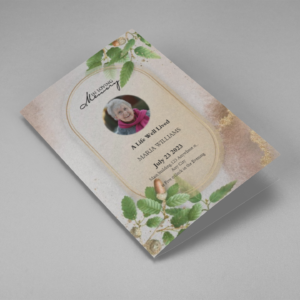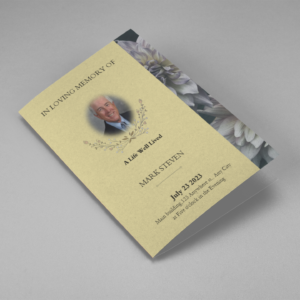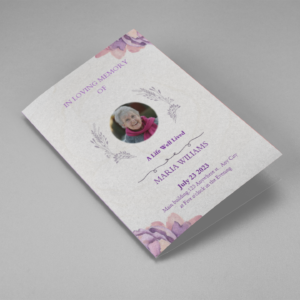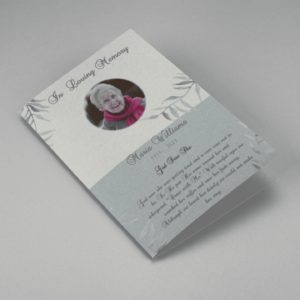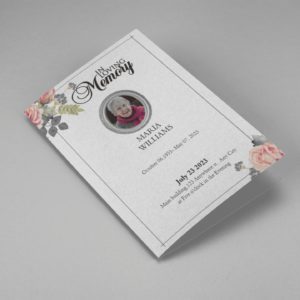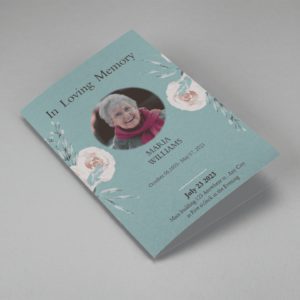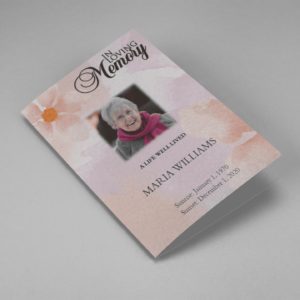A Funeral Wake is a gathering held after a person’s passing, offering a space for family and friends to remember, support, and share memories. Often held at a home, funeral home, or community venue, it provides an informal setting where attendees can express condolences, exchange stories, and offer comfort to the bereaved. Wakes can be somber or celebratory, reflecting the individual’s life and personality. They play a vital role in the grieving process, fostering a sense of unity among those affected by the loss and allowing them to begin the healing journey together.
Organizing the Program
Organizing a funeral wake requires careful planning to ensure that it provides a meaningful and supportive environment for family and friends to gather and remember the deceased. Here’s a step-by-step guide:
- Choose a Venue: Select a venue that can accommodate the expected number of attendees. It could be a family home, community center, funeral home, or even an outdoor space if weather permits.
- Set Date and Time: Choose a date and time that works for most guests. Coordinate with close family members to ensure alignment.
- Notify Guests: Inform family and friends about the wake through invitations, phone calls, or social media. Provide the date, time, venue, and any additional details.
- Decoration and Atmosphere: Decorate the venue to create a comforting and reflective atmosphere. Consider using flowers, candles, and photos of the deceased to personalize the space.
- Seating and Arrangement: Arrange seating to encourage conversations and interactions. Create spaces for relaxation and quiet contemplation as well.
- Refreshments: Provide light snacks, beverages, and comfort foods. This gives attendees a chance to gather and share stories.
- Memory Displays: Set up a memory table with photos, mementos, and items that reflect the person’s life and interests. This invites guests to engage in conversation and share memories.
- Guest Book: Place a guest book for attendees to sign, offering an opportunity for them to share their thoughts and memories.
- Music and Audiovisuals: Play soft background music or a slideshow of photos to evoke a sense of nostalgia and reflection.
- Words of Remembrance: Allocate time for eulogies, speeches, or readings if desired. This allows people to share stories and memories of the deceased.
- Support System: Have a designated area or person available to provide emotional support for those who need it.
- Thank You Cards: Prepare thank you cards to express gratitude to attendees for their support and presence.
- Flexibility and Comfort: Be adaptable to the emotional needs of attendees. Some may want to converse, while others may prefer solitude.
- Respect Cultural Practices: Consider any cultural or religious practices that should be observed during the wake.
- After the Wake: Ensure there’s a plan for cleanup and follow-up, including sending out thank you cards and communicating any future memorial events
Activities Of Funeral Wake
Funeral wakes can vary in terms of the programs and activities held, depending on cultural traditions, personal preferences, and the overall atmosphere the family wishes to create. Here are some common types of programs that can be included in a funeral wake:
Eulogies and Tributes
Family members and close friends may share eulogies or tributes, recounting memories, stories, and anecdotes about the deceased’s life, personality, and impact.
Prayers and Religious Observances
For religious or spiritually-inclined gatherings, prayers, hymns, and religious rituals may be conducted to honor the deceased’s beliefs and offer comfort to the bereaved.
Open Mic or Sharing Sessions
An open mic session allows attendees to share their own memories and thoughts about the deceased. This can create a supportive and inclusive environment for all to participate.
Memorial Slideshow
Display a slideshow of photographs showcasing the various stages of the deceased’s life, helping attendees remember and celebrate their journey.
Music and Performances
Musical performances or playing the deceased’s favorite songs can evoke emotions and provide a memorable tribute.
Candle Lighting or Rituals
Light candles in memory of the deceased, symbolize the continuation of their presence and the light they brought into others’ lives.
Video Messages
If there are friends or family members unable to attend in person, video messages can be recorded and played during the wake.
Guestbook and Condolence Table
Set up a guestbook for attendees to sign, along with a condolence table where guests can leave cards, notes, or small tokens of remembrance.
Charitable Donations or Memorials
Instead of flowers, the family may request donations to a charitable cause in the deceased’s name. This can create a lasting legacy of positive impact.
Reflection and Quiet Time
Provide moments of silence or reflection, allowing attendees to process their emotions privately or collectively.
Cultural and Religious Traditions
Depending on cultural and religious practices, specific rituals or ceremonies may be conducted during the wake.
Thank You and Acknowledgments
Express gratitude to attendees for their support through spoken words and written thank you cards.
Artistic Expressions
If the deceased were an artist, writer, or creative individual, you can showcase their work as a way of celebrating their talents.
Balloon or Lantern Release
Release balloons or lanterns into the sky as a symbolic gesture of saying goodbye and releasing the spirit.
Invitation For Funeral
Invitations for a funeral wake can be organized through templates to ensure consistent and clear communication of the event details. Here’s a step-by-step process to create and send invitations using a template:
- Select a Template: Choose a funeral wake invitation template that suits the tone and style you want to convey. Quickfuneral.com has a variety of funeral templates which is fully editable and customizable.
- Personalize the Template: Open the template in a design software or word processor. Replace the placeholder text with the actual event details. Include the deceased’s name, date, time, venue, and any special instructions.
- Choose Fonts and Colors: Customize the fonts, colors, and layout to match the theme and feel of the event. Keep the design respectful and easy to read.
- Add Visual Elements: Include any appropriate images, such as a photograph of the deceased or a calming image that resonates with the theme.
- Edit and Proofread: Double-check all details for accuracy and correctness. Ensure there are no spelling or formatting errors.
- Include Contact Information: Provide a contact person’s name, phone number, or email address for RSVPs or inquiries.
- Save and Export: Save the completed template as a high-resolution image or PDF file. This ensures that the design remains intact when shared digitally or printed.
- Printed Invitations: If you’re printing physical invitations, ensure the template’s dimensions match the size of the printed card. Use high-quality paper or cardstock for a polished look.
- Digital Invitations: If sending digitally, attach the image or PDF to emails, social media posts, or messaging apps. Make sure the invitation is easily accessible and downloadable.
- Distribution: Send the invitations well in advance. Email or message digital invitations, and mail physical invitations to those who may prefer a tangible invite.
- Follow Up: After a few days, consider sending a reminder to ensure the invitation is received and acknowledged.
- RSVP Management: Track RSVPs and respond promptly to any inquiries or confirmations.
- Thank You: Express gratitude for attending the wake in the invitation or include information about where guests can find more details, such as thank you cards or a memorial website.
Templates For Funeral Program
-
Searching for a Oak Leaf With Gold Oval Frame Half Page Funeral Program that is easy to print and amass and has a cutting-edge look? The Oak Leaf With Gold Oval Frame Half Page Funeral Program is the Perfect decision because it measures 8.5”x 5.5”.
- No Limitation on Content, Edit anything
- Edit anytime – unlimited revisions even after purchased
- Get a printable PDF downloaded to get it printed on your own.
-
Searching for a Brown and White Classic Funeral Program Half Page Program that is easy to print and amass and has a cutting-edge look? The Brown and White Classic Funeral Program Half Page Program is the Perfect decision because it measures 8.5”x 5.5”.
- No Limitation on Content, Edit anything
- Edit anytime – unlimited revisions even after purchased
- Get a printable PDF downloaded to get it printed on your own.
-
Searching for a Purple Elegant Watercolor Half Page Funeral Program Template that is easy to print and amass and has a cutting-edge look? The Purple Elegant Watercolor Half Page Funeral Program Template is the Perfect decision because it measures 8.5”x 5.5”.
- No Limitation on Content, Edit anything
- Edit anytime – unlimited revisions even after purchased
- Get a printable PDF downloaded to get it printed on your own.
-
Searching for a Cream and Green Photo Obituary Half Page Program that is easy to print and amass and has a cutting-edge look? The Cream and Green Photo Obituary Half Page Program is the Perfect decision because it measures 8.5”x 5.5”.
- No Limitation on Content, Edit anything
- Edit anytime – unlimited revisions even after purchased
- Get a printable PDF downloaded to get it printed on your own.
-
Searching for a Cream Simple Elegant Photo Church Half Page Program that is easy to print and amass and has a cutting-edge look? The Cream Simple Elegant Photo Church Half Page Program is the Perfect decision because it measures 8.5”x 5.5”.
- No Limitation on Content, Edit anything
- Edit anytime – unlimited revisions even after purchased
- Get a printable PDF downloaded to get it printed on your own.
-
Searching for a Samovar Silver Half Page Funeral Program Template that is easy to print and amass and has a cutting-edge look? The Samovar Silver Half Page Funeral Program Template is the Perfect decision because it measures 8.5”x 5.5”.
- No Limitation on Content, Edit anything
- Edit anytime – unlimited revisions even after purchased
- Get a printable PDF downloaded to get it printed on your own.
-
Searching for an Elegant Beige Half Page Funeral Program Template that is easy to print and amass and has a cutting-edge look? The Elegant Beige Half-Page Funeral Program Template is the Perfect decision because it measures 8.5”x 5.5”.
- No Limitation on Content, Edit anything
- Edit anytime – unlimited revisions even after purchased
- Get a printable PDF downloaded to get it printed on your own.
-
Searching for a White Floral Pro Half Page Funeral Program Template that is easy to print and amass and has a cutting-edge look? White Floral Pro Half Page Funeral Program Template is the Perfect decision because it measures 8.5”x 5.5”.
- No Limitation on Content, Edit anything
- Edit anytime – unlimited revisions even after purchased
- Get a printable PDF downloaded to get it printed on your own.
-
Searching for a Grey and Burgundy Elegant Half Page Funeral Program Template that is easy to print and amass and has a cutting-edge look? Grey and Burgundy Elegant Half Page Funeral Program Template is the Perfect decision because it measures 8.5”x 5.5”.
- No Limitation on Content, Edit anything
- Edit anytime – unlimited revisions even after purchased
- Get a printable PDF downloaded to get it printed on your own.
-
Searching for a Soft Green and Grey Minimalist Floral Half Page Funeral Program Template that is easy to print and amass and has a cutting-edge look? Soft Green and Grey Minimalist Floral Half Page Funeral Program Template is the Perfect decision because it measures 8.5”x 5.5”.
- No Limitation on Content, Edit anything
- Edit anytime – unlimited revisions even after purchased
- Get a printable PDF downloaded to get it printed on your own.
-
Searching for a Gray Elegant Oval Frame Half Page Funeral Program Template that is easy to print and amass and has a cutting-edge look? Gray Elegant Oval Frame Half Page Funeral Program Template is the Perfect decision because it measures 8.5”x 5.5”.
- No Limitation on Content, Edit anything
- Edit anytime – unlimited revisions even after purchased
- Get a printable PDF downloaded to get it printed on your own.
-
Searching for a Blue Organic Minimal Half Page Funeral Program Template that is easy to print and amass and has a cutting-edge look? Blue Organic Minimal Half Page Funeral Program Template is the Perfect decision because it measures 8.5”x 5.5”.
- No Limitation on Content, Edit anything
- Edit anytime – unlimited revisions even after purchased
- Get a printable PDF downloaded to get it printed on your own.
-
Searching for a Pink and Orange Watercolour Half Page Funeral Program Template that is easy to print and amass and has a cutting-edge look? Pink and Orange Watercolour Half Page Funeral Program Template is the Perfect decision because it measures 8.5”x 5.5”.
- No Limitation on Content, Edit anything
- Edit anytime – unlimited revisions even after purchased
- Get a printable PDF downloaded to get it printed on your own.
-
Searching for a Pink Floral Paper Half Page Funeral Program Template that is easy to print and amass and has a cutting-edge look? Pink Floral Paper Half Page Funeral Program Template is the Perfect decision because it measures 8.5”x 5.5”.
- No Limitation on Content, Edit anything
- Edit anytime – unlimited revisions even after purchased
- Get a printable PDF downloaded to get it printed on your own.
Funeral Wake : Helping Videos
Frequently Asked Question On Funeral Wake
Arranging a funeral wake is a challenging work and it becomes more challenging in difficult time .Here we provide some frequent asked question which can be helpful for you :
What is a funeral wake?
A funeral wake is a gathering held after a person’s passing, where family and friends come together to remember, share stories, and offer support.
Where is a funeral wake held?
It can be held at a home, community center, funeral home, or any suitable venue. Outdoor spaces or places significant to the deceased are also considered.
What is the purpose of a funeral wake?
The purpose is to honor the deceased, share memories, provide comfort, and offer support to the grieving family and friends.
What activities happen during a wake?
Activities include eulogies, sharing sessions, prayers, music, and memory displays. It’s a time for stories, reflection, and celebrating life.
Do wakes have a specific duration?
There’s no fixed duration; it can be a few hours or longer, depending on cultural practices and the preferences of the family.
Is it appropriate to bring gifts to a wake?
Flowers, sympathy cards, and donations to a charity in the deceased’s name are common gestures of support.
How can I support grieving individuals at a wake?
Offer your condolences, lend a listening ear, and be respectful of their emotions. Your presence matters.
Can I attend a wake even if I didn't know the deceased well?
Yes, attending to show support for the grieving family is meaningful, even if your connection was limited.
Are funeral wakes religious events?
While they can include religious elements, wakes are often more focused on remembrance and support rather than specific rituals.
How do I express condolences during a wake?
A simple hug, offering kind words, or sharing a memory are thoughtful ways to express condolences.


